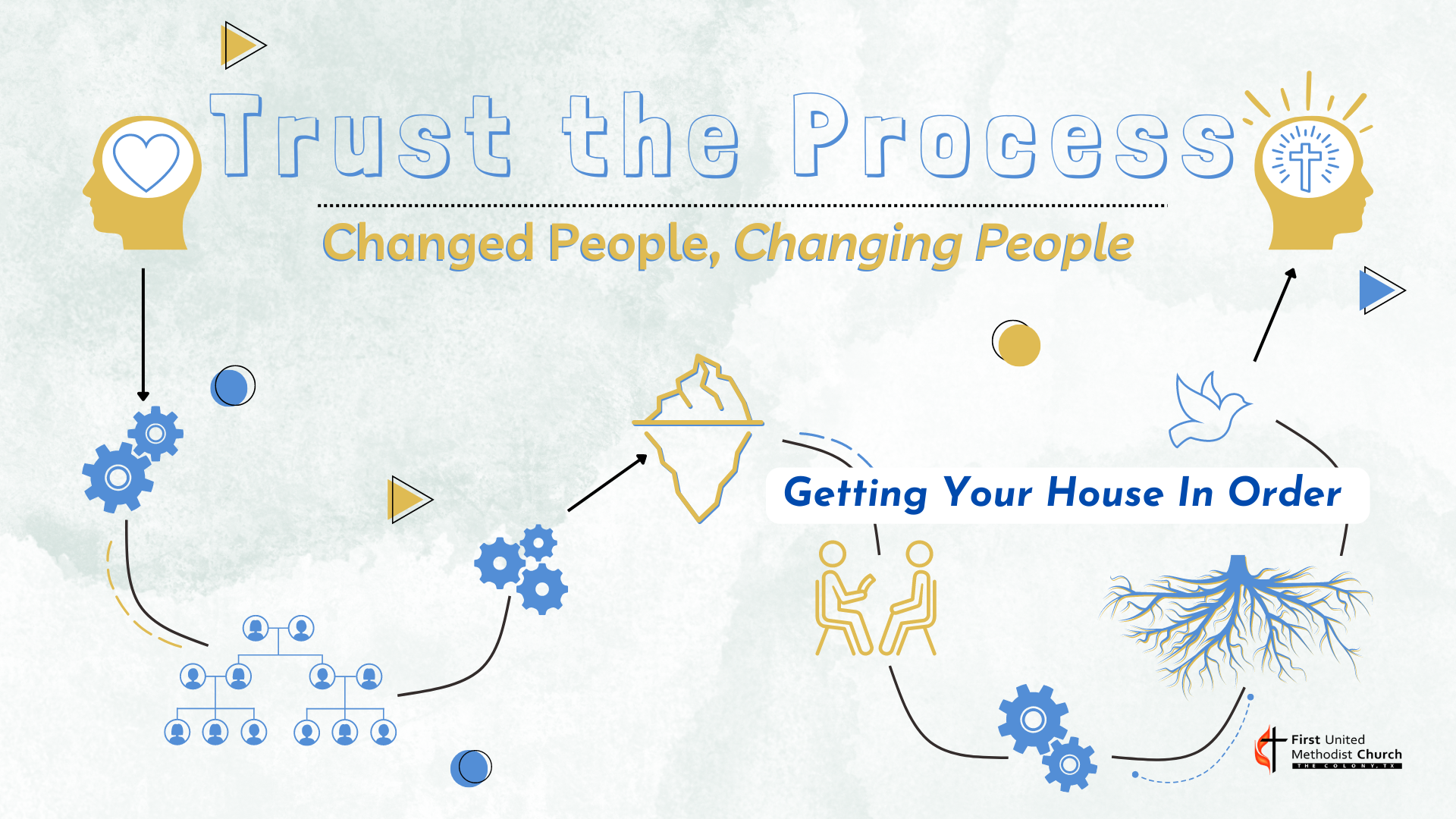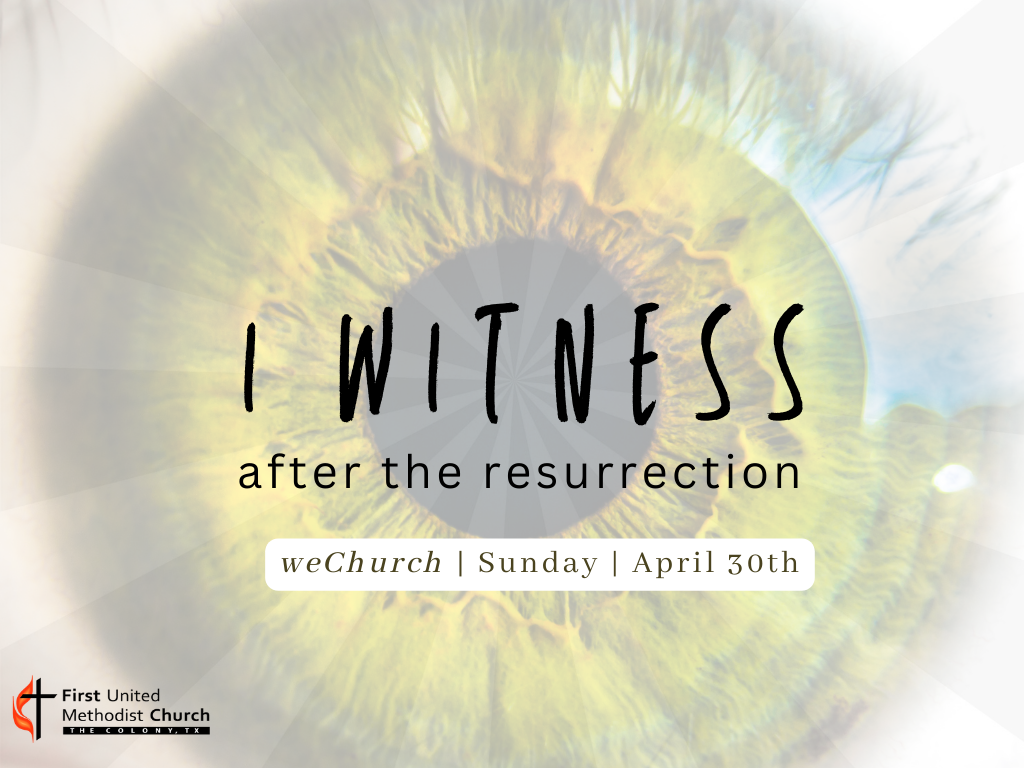Getting Your House in Order

This Sunday in worship we begin our eight-week summer series, Trust the Process: Changed People, Changing People. I've mentioned for a few weeks now that this sermon series is running in conjunction with a book by Peter Scazzero entitled: Emotionally Healthy Spirituality. The subtitle of Scazzero’s work is a bit longer: It’s impossible to be spiritually mature while remaining emotionally immature.
His book’s subtitle may not be short and pithy, but it’s certainly jammed-pack with a core Christian truth that we, United Methodists, hold as a core pillar of our faith life: namely, the process of sanctification.
In the Wesleyan faith – so named after John Wesley, Methodism’s founder – we believe that God is constantly present in our lives even before we were born, extending us grace. This we call
“prevenient grace.” Hopefully, at some point, a person may experience this grace that comes before us in a very real and tangible way. We express this tangible experience as God’s
“justifying grace” – so named because in that moment we may feel justified, set-right, vindicated before God.
For many denominations that’s where the faith journey ends. Confess Jesus and your saved, they say.
This is unfortunate for too many reasons to name in a short devotional. Suffice it to say, for United Methodists, we believe that at the same moment we experience the “justifying grace” of God that is also the beginning point of the journey of growing
into God’s
“sanctifying grace.” It’s where the hard work really begins.
Every denomination and church and pastor and person may define sanctification slightly differently; but at its most basic level to be sanctified is
to be made holy. And we affirm that the hard work of being a Christian, following in the footsteps of Jesus Christ, growing in Christ’s likeness, growing in holiness of heart and life, re-establishing the image of God within us… well all of this is the process of sanctification.
And guess what! This process includes our emotions!
Not just our emotions, but our entire self. The good parts of you that you’re aware of and the bad parts you’re are not so aware of (e.g. your strengths and your weaknesses, respectively). Sanctification includes making holy the good and bad parts of our self we’re
not
aware of, as well.
Scazzero uses the word “sanctification” throughout his book, but this week as we explore chapter one together, I want to highlight this theological theme. Where he uses the image of an iceberg, claiming that often we Christians may work on the tip of the iceberg (that which we can only see), there’s still so much more work to be done beneath the surface – especially when it comes to our emotional wellbeing.
I pray you’ll embark on this journey with us, trust the process, and invite God’s Holy Spirit to change you that you might be moved in some way that will set you up to be a change agent for another person.
Study Guide Questions for Week 1:
Scazzero describes 10 “symptoms of emotionally
unhealthy spirituality” (you can read more about these on pg. 22-36). They are:
- Using God to run from God
- Ignoring anger, sadness, and fear
- Dying to the wrong things
- Denying the impact of the past on the present
- Dividing life into “secular” and “sacred” compartments
- Doing for God instead of being with God
- Spiritualizing away conflict
- Covering over, brokenness, weakness, and failure
- Living without limits
- Judging other people’s spiritual journey
- Take a moment and ask: Which of these symptoms is present in my life?
- Were you aware of this symptom(s) before now?
- Which is a symptom(s) you once experienced but have worked on?
- What did that process or journey look like in your life?
Our core passage this week is Ephesians 4:14-15 and Luke 11:24-26
In the passage from Luke, Jesus speaks about cleansing ourselves from “impure spirits.” Paul writes of “maturing” from an infant like state where we are no longer drastically affected by the winds.
- Emotions aren’t bad. How can we differentiate between “impure spirits” and our human, emotional responses?
- What are the winds Paul speaks of? And how might maturing in our faith change how we respond to the winds around us?
- Is your body a hospitable place for impure spirits? For emotions? For Christ?
Grace & Peace,
Pastor Taylor



